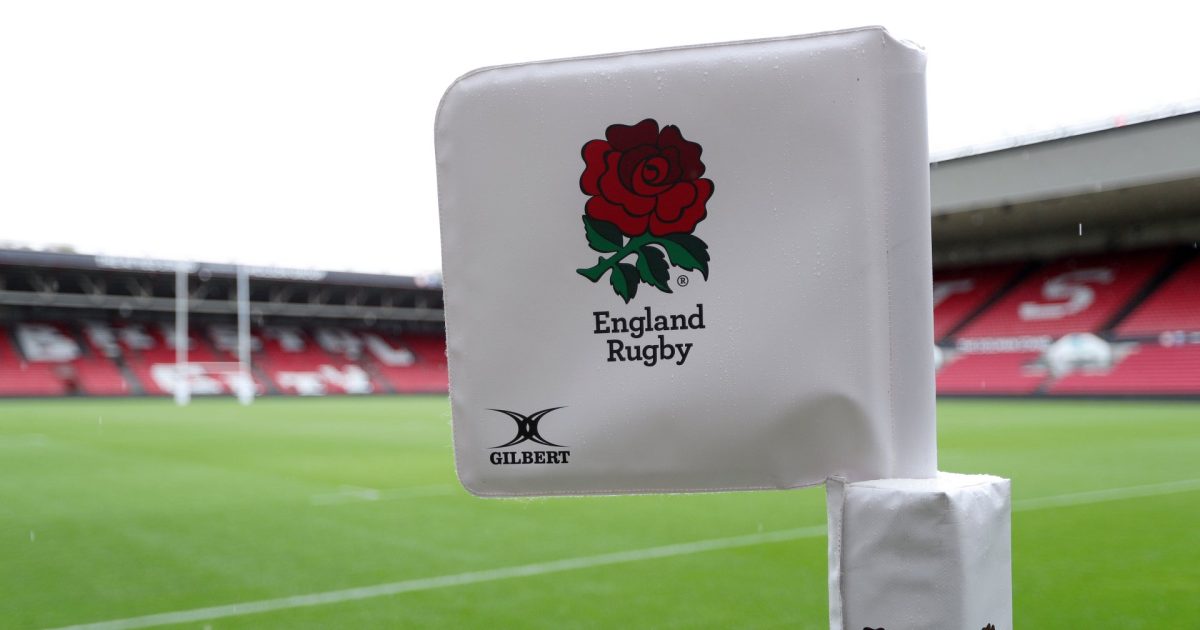'Addiction to tinkering': Two Premiership bosses on RFU tackle law

Two Gallagher Premiership directors of rugby – Sale boss Alex Sanderson and Rob Baxter of Exeter – have shared their thoughts on the controversial decision by the RFU to restrict rugby to waist-high tackles in the community game from the 2023/24 season onwards. The radical change will see aspiring professional players coming through academies having to play under a different tackle law at their developmental level than what will exist at Premiership or Championship level.
It will also mean the same adjustment is needed for professional players loaned out to National One clubs. Currently, Sale Sharks have a symbiotic relationship where their young recruits are involved with Sale FC, the grassroots club currently topping National One, while they are also associated with Caldy, the sixth-place team in the Championship.
Sale boss Sanderson predicts a faster game will emerge at the community level but fears the consequences will be an increase in the rate of concussions due to the lowering of the tackle height. “I don’t understand the process of what they set out to do,” he began when asked for his view on the debate that has consumed the game in England since last Thursday when it first emerged the RFU had voted to massively alter tackling at all levels below the top two professional leagues.
“I understand their intent, which is right, to minimise concussions and directly the head-on-head double concussions that you can get, that we saw a few of in the Sarries-Edinburgh game. But what we know, what I have been told is that 70 per cent of the concussions occur to the tacker, not the ball carrier. From my understanding, all you are doing is increasing the risk of that tackler getting more concussions because of where he is putting his head in around the hard bits of the ball carrier’s body.
“So I understand their intent, which is good and right and noble, and I understand what they are trying to get rid of but for me, doing such a drastic law change could yield more concussions than it can save and put the tackler in more harm. Notwithstanding the different coaching technique – you know you have got a 6ft 10 guy, like a 6ft 8 fella. Like, we could never get JP du Preez or Lood de Jager down to waist high. It was always belly-high-to-chest at best. So that brings its own technical differences.”
How does Sanderson think youngsters coming through the Sale pathway at community level would adjust to playing that game with a restricted tackle law compared to what would be permitted at professional level? “Yeah, there would be more offloads, the ball would move around a bit quicker because you can’t spend time in the tackle, particularly as they are being harsh about people being on the wrong side of the ball.
“The game would be faster, there would be more offloads but there would be more injuries. Essentially it’s the same game, it’s just the technique has changed. You shape and you evolve, there are law changes every year. Every year and the game continues. We’ll find a way.”
Long-serving Exeter boss Baxter came at the debate with a more holistic view, that he is tiring of the generally frequent law changes that are taking place in rugby, not just this latest tackle law alteration by the RFU for its community level game. The coach is a board member at the Chiefs who is active on the business side of the sport and he feels the constant tinkering with the laws is complicating the game and making it harder for fans to follow and play.
“It is one of the biggest challenges that rugby union has because what do we do, we are consistently tinkering and changing with laws,” he suggested. “I’m not just talking about tackle height, it’s something that is coming out non-stop around the ruck area, scrum, lineout, attack, defence.
“Do you lean more towards attack, more towards defence? Is it too easy to keep the ball? Is player X going off their feet, can player Y do it? We have got this addition to tinkering non-stop and it just makes it harder and harder for the game to be played… it is one of our biggest challenges if we want to grow the game.
“Football is what it is, but you can go down to the parks and you can play virtually the same game. I know you say you haven’t got VAR there but VAR is pretty recent in football. On the whole, you turn up and you get on with it. Rugby is getting a lot harder, harder and harder to do that and it is going to become harder and harder and harder to referee.
“There are going to be lots of challenges and we just need to be careful. We are a very knee-jerk, reactive type of sport. We need to have an effort to change being a reactive sport to help us grow the game.”
































































